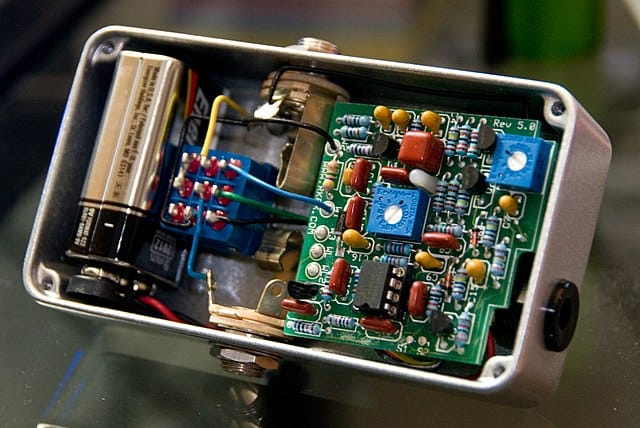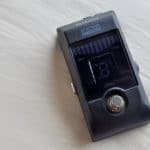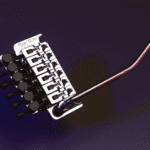There has been an explosion of boutique builders in the effects pedal market lately.
There are so many that you may even be faced with choice paralysis when trying to decide which one is right for you.
What makes a popular pedal so much more desirable and expensive than the tried and true Boss version? Is any of this even legal?
You can’t blatantly counterfeit a company’s effects pedals but most technologies used in them are no longer patented. So do some research regarding the patent and then as long as you’re not infringing on a company’s trademarks or copyrights you can try your hand at recreating your favorite pedals.
Looking at some of the aspects of patent law in the USA may shed some light on why so many manufacturers seem to be offering the same pedals over and over.
But I’m not a lawyer so bear with me as I try to make sense of some of this. I can say I have learned some new things exploring this topic and I hope you do too.
Are guitar pedal circuits protected by copyright or patents?
Most guitar effects have been around for a long time. There are probably only twenty or so effects that you see on a regular basis.
The most recent effects that I encountered were probably octave and auto-wah and those aren’t exactly new either.
Utility patents are only good for 20 years from the application date so unless an effects pedal is offering some new technology the circuit should be available for anyone to use.
Big companies usually patent their innovations but the cost for a lawyer to do the work can be up to $16k and I believe there are maintenance fees after that. So depending on who came up with the effect, it may have never been patented at all.
They would have to sell a lot of pedals just to cover the expense of the patent.
But… the schematic of the circuit and the specific design of the PCB may be copyrighted and the logo and name are usually trademarked.
That doesn’t seem to stop people from sharing and even selling schematics online though.
Is it legal to make a clone of a famous guitar pedal?
Whether you can legally clone a pedal depends on whether the original was ever patented and how long ago.
Basically, if the pedal was released in the last twenty years you should examine the pedal and box to see if it has a patent applied to it.
There are also websites that allow you to search existing patents but they may not be free to use.
As an example of patented technology in a pedal somewhat recently, the TC Electronic Polytune used poly-chromatic technology that let you strum all the strings at once and the pedal could tell you which needed tuning.
When the pedal was released in 2010 it boasted the patented poly-chromatic technology.
The current third-generation does not mention patents in the advertising so I’m not sure if it is still protected under patent.
But that is a good illustration of why you need to check before you start cloning pedals.
Is it legal to make a clone of a guitar pedal and then sell it?
If you aren’t infringing on someone’s patented product or technology I think you are able to reproduce pedals as you want. How many distortion pedals are there on the market anyway?
And if a pedal is protected by a patent you may still be able to do it if you are able to negotiate with the patent holder and license the use of it for a fee.
There are also cases where a patent may be held in a certain country but not in other countries and as long as the clone isn’t sold where the patent is valid, no one will enforce it.
Is it ethical to clone a guitar pedal?
If the pedal you want to clone is considered public domain you are in the clear.
But should you?
I can’t tell you what you should or shouldn’t do but we all know that other companies certainly do it.
Like Machiavellian politics, I think most companies are only ethical when they think someone is watching.
However, if that is your entire business model then you will probably earn the label or an off-brand or knock-off company.
So if you clone a pedal at least try to innovate a little and put your own spin on it. After all, you don’t want to be referred to as “Ughh, that company.”
Where is the limit when cloning a pedal?
If you want to clone a pedal and start selling them you will have to at least make an effort to come up with your own branding.
Otherwise, you are just going to be selling counterfeit goods. Everyone hates that.
A company’s name, logo, product name, etc. are going to be trademarked.
But other trademarks may protect parts of the design that are not related to the function.
The decorative shape and color scheme could be part of the trademark: similar to the way Seymour Duncan has trademarked their double cream pickup color because it is associated with their brand.
So you better use either a generic design or something of your own and think of a fun name to differentiate it.
Pedal clones can lead to new sounds and options
Because most of the basic designs and technologies used in guitar effects pedals are in the public domain now, companies need to innovate to convince you to spend your money with them.
This leads to more options for consumers.
You can get a classic pedal or choose one with buffered output or true bypass technology.
Maybe one of your favorite effects is now available with a mid-scoop control or tempo-tap option.
The time limit on patent protection is really an advantage, not just for up-and-coming effects pedal companies but for us consumers too.

Hello there, my name is Ramiro and I’ve been playing guitar for almost 20 years. I’m obsessed with everything gear-related and I thought it might be worth sharing it. From guitars, pedals, amps, and synths to studio gear and production tips, I hope you find what I post here useful, and I’ll try my best to keep it entertaining also.





